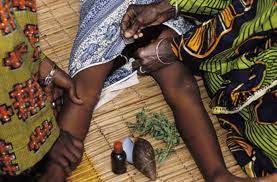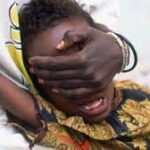By Hassan Zaggi
Concerned by the rising cases of the Female Genital Mutilation (FGM) in Nigeria, the United Nation Children Fund (UNICEF), has concluded plans to initiate what it described as a community-led movement to eliminate the practice in five Nigerian states.
The five states which are said to have the highest prevalent of FGM include Ebonyi, Ekiti, Imo, Osun and Oyo.
In a statement to commemorate the International Day of Zero Tolerance for FGM, UNICEF revealed that nearly 3 million girls and women would have undergone FGM in these States in the last five years.
According to UNICEF, “The Movement for Good” will reach 5 million adolescent girls and boys, women – including especially pregnant and lactating mothers – men, grandparents, and traditional, community and religious leaders, legislators, justice sector actors, and state officials through an online pledge to ‘say no’ to FGM.
The movement, it further explained, will mobilise affected communities for concrete action at the household level to protect girls at risk of FGM and will challenge misconceptions on FGM and the discriminatory reasons it is practiced and break the silence around the practice together with communities.
The UNICEF further noted that FGM is recognized internationally as a violation of the human rights of girls and women. It reflects deep-rooted inequality between the sexes and is an extreme form of discrimination against girls and women.
It is nearly always carried out on children and is a violation of children’s rights. The practice also violates a person’s rights to health, security and physical integrity; the right to be free from torture and cruel, inhuman or degrading treatment; and the right to life, in instances when the procedure results in death.
According to the UNICEF Representative in Nigeria, Peter Hawkins: “Millions of girls are being robbed of their childhoods, health, education, and aspirations every day by harmful practices such as FGM.
“The practice of FGM not only has no health benefits – it is deeply harmful to girls and women, both physically and psychologically. It is a practice that has no place in our society today and must be ended, as many Nigerian communities have already pledged to do.”
He further said that: “The International Day of Zero Tolerance for FGM reminds us that we are not alone in this work and that we need to accelerate efforts – especially with families and communities – to achieve a Nigeria safe for girls and women and finally free of FGM.”
The UNICEF disclosed that FGM remains widespread in Nigeria. With an estimated 19.9 million survivors, Nigeria accounts for the third highest number of women and girls who have undergone FGM worldwide.
While the national prevalence of FGM among women in Nigeria aged 15-49 dropped from 25 per cent in 2013 to 20 per cent in 2018, prevalence among girls aged 0-14 increased from 16.9 per cent to 19.2 per cent in the same period, according to NDHS figures.
An estimated 86 per cent of females were cut before the age of 5, while 8 per cent were cut between ages 5 and 14.
As the world today commemorates the International Day of Zero Tolerance of FGM, 68 million girls worldwide were estimated to be at risk of female genital mutilation between 2015 and 2030.
As COVID-19 continues to close schools and disrupt programmes that help protect girls from this harmful practice, an additional 2 million additional cases of FGM may occur over the next decade.



